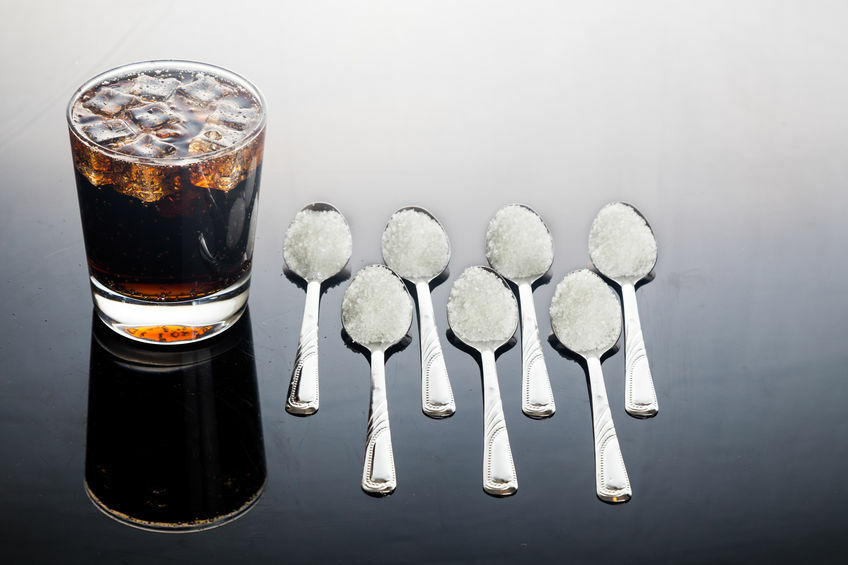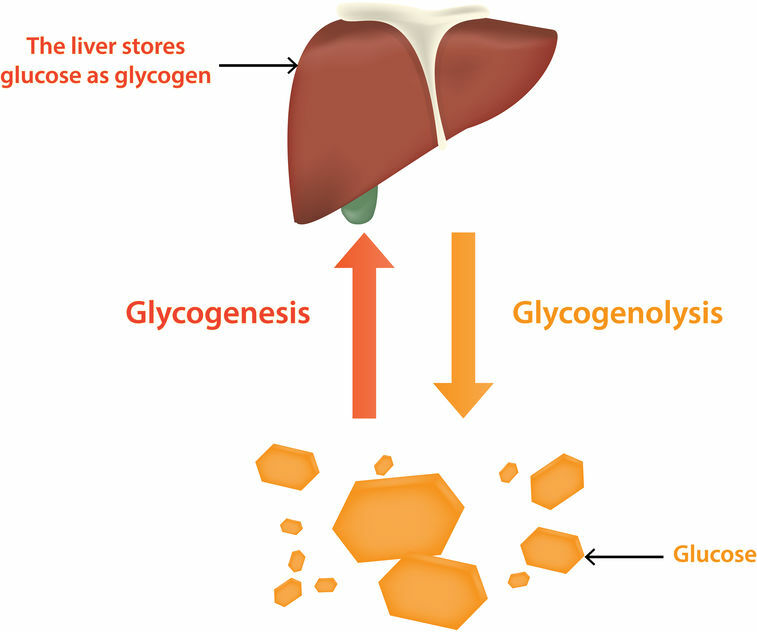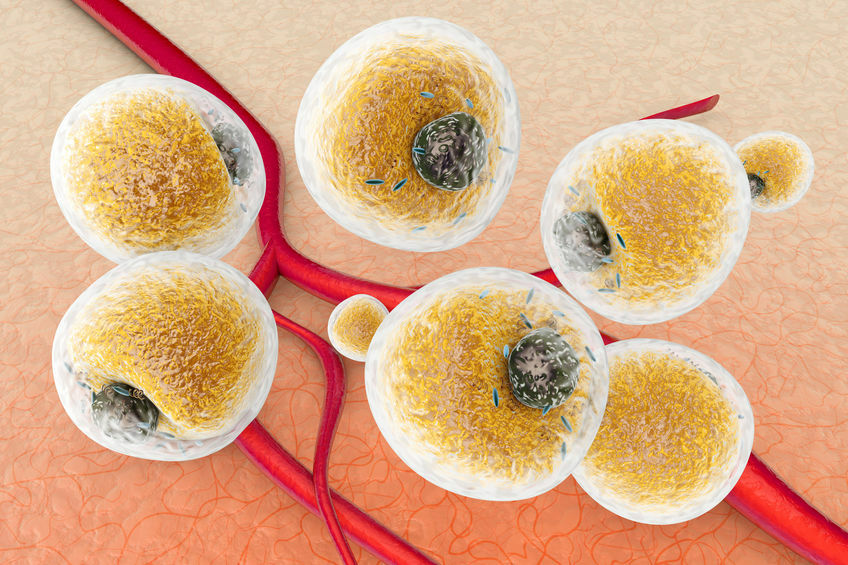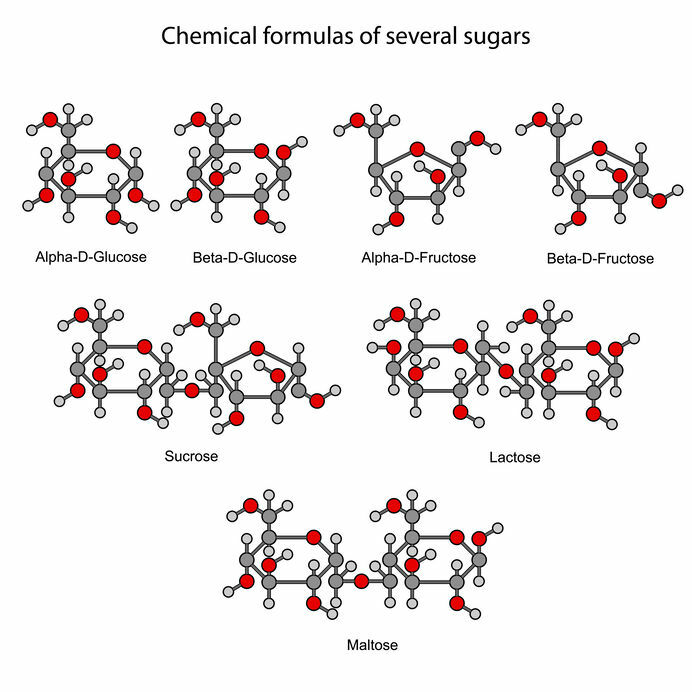Just because your body stores glucose and uses glucose does not mean you have to eat glucose. Firstly let's start with a very basic description of energy usage from glucose and from fat. As we go through this post the science ‘bits’ will increase but some folk just want a very general overview of glucose and fat utilisation, so here it is.

Stored energy
If you think about the stored sugar in our liver and muscles it amounts to about 2,000 calories of stored energy, enough to keep you going for 24 hours approximately. This stored energy in our body is called glycogen (starch is the plant-stored-energy equivalent) and you use up glucose from glycogen on a second-by-second basis, even asleep. The brain uses 25% of this available energy, roughly amounting to 120g per day, around 24 teaspoons of sugar over a 24 hour period. But you do not need to eat this large amount of glucose every day to feed the brain as the liver supplies it based on demand and from various sources, which are more technically known as substrates. The blood is around 5 litres in total and to have 'normal' blood glucose it is considered to be around 5gm at any given time (that is equivalent to just one teaspoon.) The reason why sodas are generally considered bad for your health is due to the large amount of sugar they contain. See the illustration for a glass of popular soda!

The body does not need to use glucose from food or drink directly. Glucose can be made from various substrates such as; free fatty acids, from waste products derived from muscle usage, from the glycerol backbone of triglycerides and even from some amino acids. As you can see the body does not need carbohydrates at all. This does not mean that the body does not need glucose though. Some tissues in the body only use glucose to function but they do not have a preferred source of the supply. The demand for glucose is moderated by the body and production and delivery is via the liver.
While neurons and other central nervous system cells can use ketones, and are actually quite good at it, their high energetic requirement requires some glucose to be present and ready to be used as a fuel in addition to ketone bodies. For example, the brain uses about 120g per day of glucose—about 60% of the total glucose consumed by the body under resting conditions

The brain
The brain lacks fuel stores and hence requires a continuous supply of glucose. It consumes about 120g daily, which corresponds to an energy input of about 420 kcal (1760 kJ), accounting for some 60% of the utilisation of glucose by the whole body in the resting state. See the full study by clicking the link. https://www.ncbi.nlm.nih.gov/books/NBK22436/
The gluconeogenesis pathway is essentially a reversal of glycolysis with the exception of a few well-regulated steps. Most gluconeogenesis (about 90%) happens in the liver, and the remaining 10% occurs in the kidney. This is from NON-CARBOHYDRATE SUBSTRATES (fatty acids, lactate and glycerol etc)
Just to be clear of other terms that involve glucose, glycogenesis is the formation of glycogen from glucose and glycogenolysis is the breakdown of glycogen to glucose from the liver. These are relating to processes that are directly to and from glucose but it still does not mean the glucose originates from carbohydrates.

Many argue that this is why humans “need carbohydrates” in order to function, but remember, this simply means glucose—not necessarily coming from dietary carbohydrates
Glycogen is simply a string of sugar molecules that the body will make sure is broken down to release the energy it contains. Once that glycogen is broken down and the body starts to use it up then the body will need to replenish it but you do not need to consume glucose (carbohydrates) to replace it.
Fat Cells

Your body has fat cells for a very good reason, it’s stored food (or stored energy if you prefer), and fatty acids can be used in gluconeogenesis (the formation of new glucose from non-carbohydrate substrates). Just so you know, an average 70kg male has enough stored energy in the form of fat to last 54 days without food (do not try this at home)
The liver starts to produce sugar by using up fatty acids from your fat storage. Some people call this ‘fat-burning.’
Glucose likes to attract other molecules

For every molecule of glucose you will find three molecules of water attached, this is why when you reduce carbohydrates you lose some of that unnecessary water retention. If you lose it quickly (urination) then you might lose some salt with it. This is why some people drink salty water when adapting.
Red blood cells, the central part of the kidney medulla, the eye’s lens and cornea, and the testicles are just some examples of tissues that need glucose to function, since they cannot use ketone bodies as a fuel. They don't have the necessary transporters to get ketones in, or the enzymes to break ketones down.
Even if you’re in ketosis, gluconeogenesis is still occurring. It’s not as if some switch is flipped where gluconeogenesis is either “on” or “off.” Furthermore, our body has ways of balancing and mediating the gluconeogenesis response so that blood glucose doesn’t rise too quickly.

If you’re fairly insulin sensitive, any glucose response to a high-protein meal is dealt with accordingly. Gluconeogenesis also occurs slowly, and it’s unlikely you’d experience high blood sugar in response to a single high protein meal. See the science here https://www.ncbi.nlm.nih.gov/pmc/articles/PMC424828/?page=4
Another term you may have heard is a process is called glycolysis. The word can be explained thus; ‘glyco’ = glucose and ‘lysis’ which means 'to cut.' It is when a glucose molecule is cut to make pyruvate. Pyruvate is used in energy production. Again this does not mean dietary carbohydrates, it is glucose from any source.

Conclusion
Glucose is a source of energy, it does build structures in the body like protein does and it is not a pre-cursor to hormones like fat. Glucose is for energy but you can make the glucose you need in your body from many available and abundantly stored substrates.
In short, your body stores glucose and uses glucose but it does not have to eat glucose.
